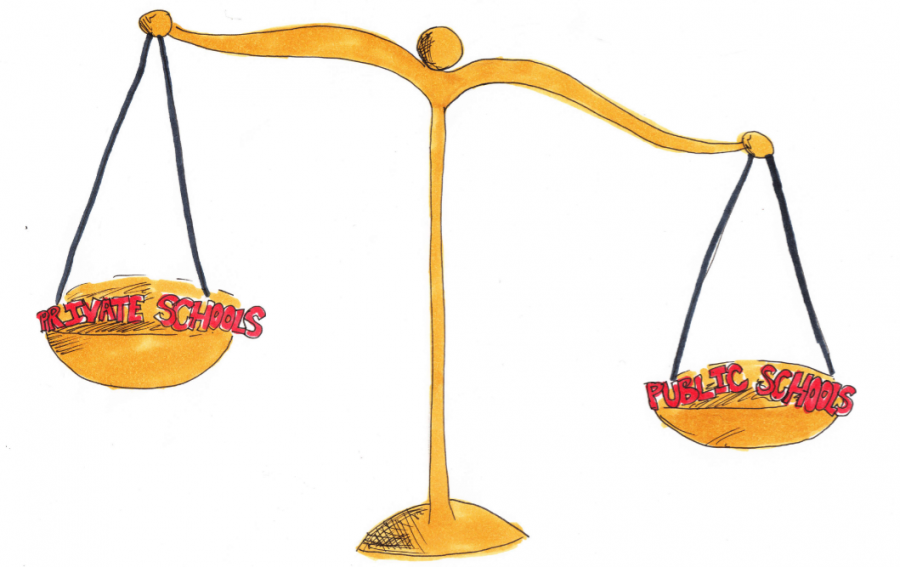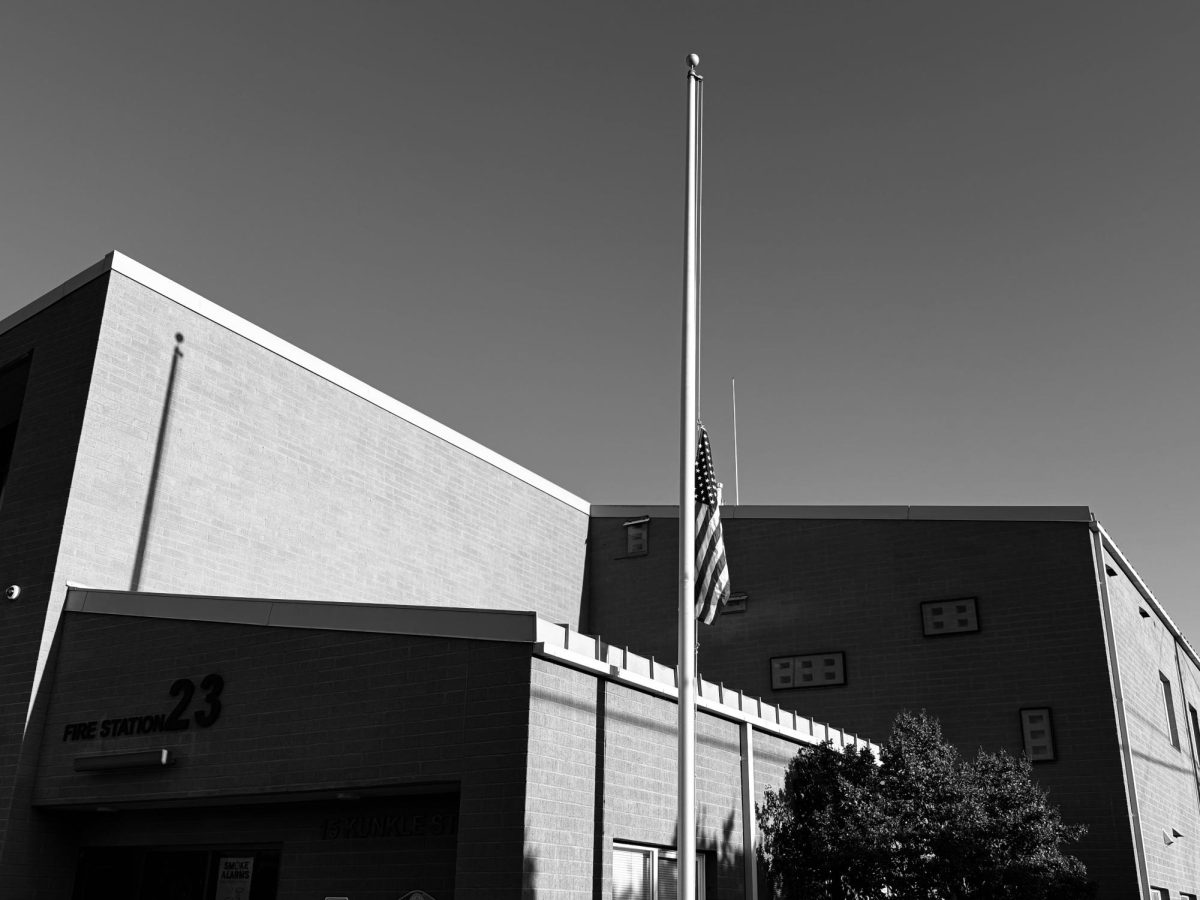The debate between whether parents should send their children to a public school or a private one is classic. The new School of Choice and school voucher legislation that the Department of Education is promoting further encourages parents to “consider the best option for their child.” This is not necessarily a bad thing, yet it has become abundantly clear that there is no competition for the “best option.” In most places in America, the only reason a parent wouldn’t send their kid to private school is if there isn’t a good one close by or if they can’t afford it.
Private schools now beat out public (in general) in basically every way. They have smaller class sizes, better and more specialized education for language and the arts, better sports teams and facilities, and give the students a better chance of getting into a top college. What parent wouldn’t want all of that for their child? Parents and students should be better served by our system of public education. It isn’t fair that public schools keep losing funding and that the gap between public schools and private continues to grow.
I’m not trying to say that we shouldn’t have private schools, but there needs to be a specific purpose for a private school to exist. For example, religious schools, boarding schools and same-gender schools are all options that a parent should have. These are all things that public schools can’t do, and because of that a private school should exist to fill that gap.
A harmful reason for private schools to exist is to simply provide better education and that is what most private schools in America are for. Private schools that exist to simply be better, more elite, public schools widen the gap of privilege in our country, leaving children whose parents can’t afford to pay huge amounts of money each year in the dust.
There isn’t a good reason why public schools can’t be of the caliber of private. Public schools should have the funding to hire more teachers (for smaller class sizes), get better facilities and open doors for students both after high school and during. A fundamental job of our country is to educate our youth and prepare them for adulthood.
In our current predicament, our country is not doing this to the best of its ability. Spending tax dollars on public schools will help every family that has children in high school. It will also even the playing field for college admissions and opportunities (to some degree). Having a high school that is considered “superior” can help in the college admissions process, and even help students make connections and network early in their lives. Of course this is alluring to parents, and that’s why the allure should be taken away. If public schools offered all the privileges of a public school, every child would have any opportunity they took advantage of.
Maybe parents want their child to be in a more “elite” school environment, with only “smart” and “accomplished” children. This is still possible with a public school system. Many large school districts in cities, such as Chicago, provide a solution. Every student will take a test in eighth-grade. They will then also rank their choices for which district school they want to attend. Certain schools in the district will have more rigorous academics, and certain schools will be targeted for students who love arts or science (similar to a magnet school).
Students and their parents will research and decide which high schools will be the best fit, and they will rank them in the order of favorites. Each school will then have a cut off score for the test, and if a student gets that score and ranks that choice first, they will be admitted. The cutoff would be different for different students so that students in extreme poverty who don’t have the resources to prepare for the test wouldn’t have to achieve quite as high a score as those who can but expensive prep books. This would ensure a fair system, and parents can have their children in the environment they want. It would also make high school more fair and equal to students from all background and income levels.
This wouldn’t be the only solution, but it is a good one. Every student should have every opportunity they want during high school, and the system shouldn’t be built to help push wealthy children further ahead while keeping everyone else back. Ninety percent of children attend a public school, and we should be helping them, not only the other ten percent, succeed. Every child deserves a good and well-rounded high school education.









